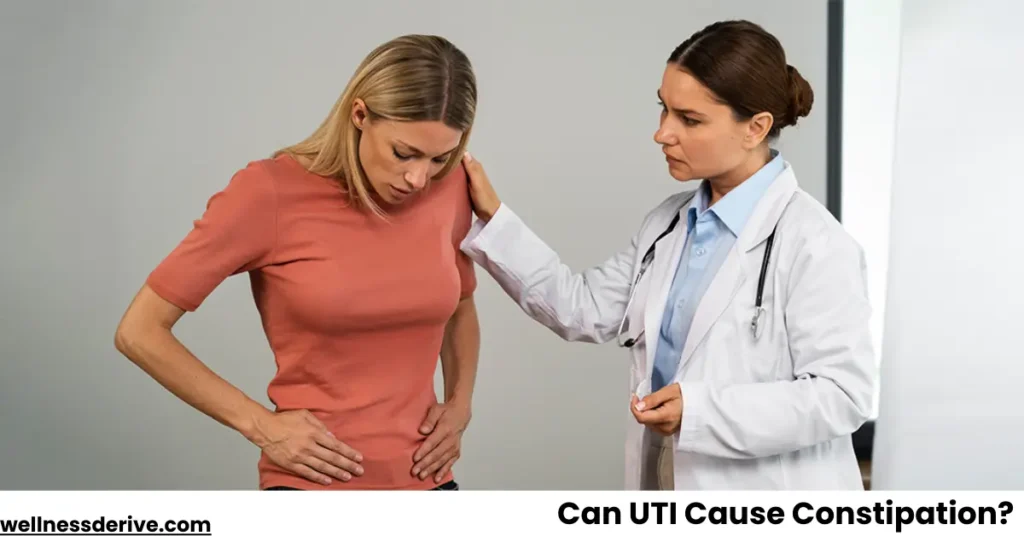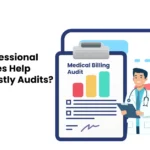Urinary Tract Infections (UTIs) are widely known for causing symptoms like burning during urination, frequent urges to pee, and pelvic discomfort. However, many people are surprised to experience unexpected digestive symptoms such as bloating, abdominal pressure, or even constipation during a UTI.
In this article, we explore the answer to a commonly searched question: can a UTI cause constipation? We’ll uncover the science behind the connection, how it affects your body, and what you can do to manage and prevent it.
Understanding UTIs and Their Symptoms
A UTI is an infection in any part of the urinary system—bladder, urethra, kidneys, or ureters—most commonly caused by E. coli bacteria. Typical UTI symptoms include:
- Burning sensation while urinating
- Frequent urination
- Cloudy or bloody urine
- Lower abdominal or pelvic pain
But the complications don’t always stop there.
Can a UTI Cause Constipation?
Yes, a UTI can cause constipation, though it’s not always a direct cause. Here’s how the connection works:
1. Inflammation in the Pelvic Region
During a UTI, inflammation doesn’t just affect the bladder—it can also irritate surrounding tissues, including the intestines. This irritation can disrupt gut motility, slowing down the movement of waste and leading to constipation.
2. Urinary Retention and Bowel Pressure
In some cases, people with UTIs develop urinary retention—difficulty completely emptying the bladder. When the bladder becomes overfilled, it can press against the colon, which may result in bloating and constipation.
3. Shared Nerve Pathways
Both the bladder and colon are regulated by the same nerve roots from the spine. So, inflammation in the bladder can indirectly affect bowel movement coordination, increasing the risk of constipation.
Does a UTI Cause Bloating?
Yes, UTIs can cause bloating. While bloating is more commonly associated with digestive issues, the proximity of the bladder to the gastrointestinal system means that inflammation and infection can spread sensations of fullness or swelling across the pelvic region.
You may feel:
- A bloated stomach during a UTI
- Gas and pressure in the abdomen
- Uncomfortable fullness, especially after eating
Can a UTI cause bloating and constipation at the same time?
Absolutely. When bladder inflammation overlaps with reduced gut motility, both bloating and constipation can occur simultaneously.
Who Is at Greater Risk?
Several groups are more likely to experience constipation and bloating with UTIs:
- Middle-aged and postmenopausal women – hormonal changes, reduced activity, and pelvic floor weakening increase risk.
- Children – studies show a strong link between functional constipation and recurrent UTIs in girls.
- People with sedentary lifestyles or low-fiber diets
- Those with chronic constipation or urinary retention issues
Treatment for UTI and Constipation Together
If you’re wondering what to do when both conditions strike, here’s a structured approach:
Medical Treatment
- UTIs: Usually treated with a short course of antibiotics.
- Constipation: Managed with laxatives, fiber supplements, or stool softeners depending on severity.
Tip: Finish your antibiotic course even if symptoms improve early to prevent recurrence.
Hydration and Nutrition
- Drink 8–10 cups of water daily to help flush bacteria and soften stool.
- Eat fiber-rich foods like whole grains, leafy greens, beans, and fruits.
- Avoid caffeine and alcohol, which can dehydrate and worsen both conditions.
Over-the-Counter Relief
- Use urinary alkalizers or analgesics to ease UTI symptoms.
- OTC osmotic agents like MiraLAX can relieve constipation without straining.
Lifestyle Adjustments
- Exercise daily to stimulate bowel movements
- Respond promptly to the urge to urinate or pass stool
- Establish regular bathroom routines
- Avoid tight-fitting clothes that stress the pelvic area
How Can You Avoid UTIs and Constipation?
Preventing both UTIs and constipation often comes down to maintaining healthy daily habits. Since the two conditions share several lifestyle-related risk factors, simple changes can significantly reduce your chances of developing them.
Hydration is Key
Drink 8–10 cups of water a day to support urinary health and soften stool for easier bowel movements.
Eat a High-Fiber Diet
Include 25–30 grams of fiber daily from fruits, vegetables, whole grains, and legumes to keep your digestive system regular.
Practice Good Bathroom Habits
- Never hold in urine or delay bowel movements.
- Always wipe front to back to avoid spreading bacteria.
- Try to urinate after sexual activity to flush out potential pathogens.
Stay Physically Active
Regular movement helps stimulate digestion and reduce urinary stagnation, both of which protect against constipation and UTIs.
Wear Breathable Clothing
Choose cotton underwear and loose-fitting clothes to reduce bacterial growth and avoid pressure on the pelvic floor.
Review Medications with Your Doctor
Some medications can contribute to either condition. Ask your healthcare provider if an adjustment could help if you’re prone to either UTIs or constipation.
When to See a Doctor
Seek medical advice if you experience:
- Persistent or recurrent UTIs (2+ in six months)
- No bowel movement for more than 3 days
- Severe abdominal pain or bloating
- Fever, chills, or nausea
- Blood in urine or stool
- Confusion or sudden fatigue (especially in older adults)
Recurrent UTIs or chronic constipation may require diagnostic testing to rule out underlying conditions like bladder dysfunction, IBS, or colon disease.
Conclusion
So, can UTI cause constipation and bloating? The answer is yes—the connection lies in shared anatomy, nerve pathways, and the effects of inflammation. UTIs can lead to bloating, interfere with normal bowel movements, and cause temporary or chronic constipation.
By understanding how your urinary and digestive systems interact, you can take smarter steps toward preventing and treating both conditions. With proper hydration, nutrition, medical care, and a healthy lifestyle, most people can find lasting relief and improved quality of life.
Disclaimer: The content on Wellness Derive is for informational purposes only and not a substitute for professional medical advice, diagnosis, or treatment. Always consult a healthcare provider for medical concerns.



